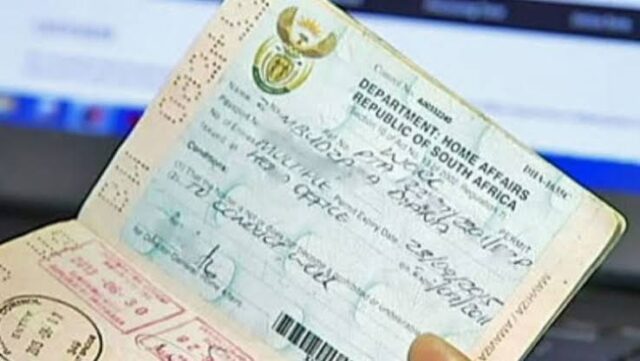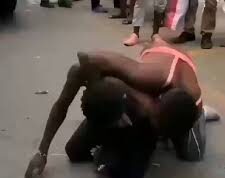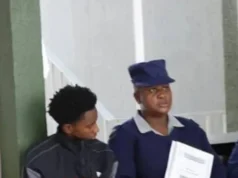From 11 to 14 April 2023, the Pretoria High Court will hear three applications challenging the termination of the Zimbabwean Exemption Permit (ZEP) by the Minister of Home Affairs. One of these cases is called the “Helen Suzman Foundation and Another v Minister of Home Affairs and Another.”
1. What is at issue in this case and when will it be heard?
The case is about the Minister of Home Affairs’ decision to end the Zimbabwean Exemption Permit (ZEP) by June 30, 2023. The Pretoria High Court will hear the case from April 11-14, 2023.
2. What is the ZEP?
The Zimbabwean Exemption Permit (ZEP) is a special permit that allows around 178,000 holders, and their children, to legally live, work, and study in South Africa. It was introduced in 2009 as the ‘Dispensation for Zimbabweans Project’ (DZP) to help undocumented Zimbabweans fleeing political violence. The DZP was renewed as the Zimbabwe Special Permit (ZSP) in 2014, and then as the ZEP in 2017. Applicants must show they have the financial means to support themselves, have no criminal record, and abandon attempts to apply for asylum status. ZEP holders are law-abiding and economically active foreign nationals who have built lives in South Africa over the last thirteen years due to desperate conditions in Zimbabwe. Many have children who only know South Africa as their home.
3. Are there viable alternatives to the ZEP?
Without the Zimbabwean Exemption Permit (ZEP), its holders cannot legally stay in South Africa unless they are granted one of the mainstream visas under the Immigration Act. However, this is difficult for most ZEP holders due to legal and practical barriers. They cannot apply for permanent residence, so they must apply for a general worker’s visa, which requires certification from the Department of Labour. The Department of Home Affairs (DHA) can waive this requirement, but it has an administrative incapacity issue and a large backlog of visa applications. The DHA recently extended the validity of existing long-term visas until December 31, 2023, but this extension was not given to ZEP holders. The backlog of applications makes it difficult for ZEP holders to apply for a waiver or a mainstream visa before the ZEP expires on June 30, 2023. Asylum seekers face the same backlog issue, and documenting their persecution is now more challenging with the passing of time.
4. What is the road ahead for ZEP holders if the Minister’s decision is upheld?
Without the Zimbabwean Exemption Permit (ZEP) and with the obstacles to obtaining a mainstream visa, most ZEP holders will face a difficult decision after June 30, 2023: return to Zimbabwe or remain in South Africa as undocumented migrants, with all the risks that come with it. Returning to Zimbabwe would be disastrous for most holders and their families, as the country remains politically unstable and economically weak. Children who have grown up in South Africa would lose access to education, healthcare, nutrition, shelter, and social assistance. As undocumented migrants, former ZEP holders would have no legal means to work, start a business, study, or access financial services, making life even more challenging for them.
5. Why did the Minister decide to terminate the ZEP?
When he announced his decision to terminate the ZEP, the Minister gave these reasons:
1. The ZEP was always a temporary measure pending improved conditions in Zimbabwe.
2. DHA’s limited budget.
3. South Africa’s increased unemployment rate.
4. That ZEP holders were violating its conditions.
The DHA has recently denied in court papers that ending the ZEP would reduce unemployment or that ZEP holders are responsible for unemployment among South African citizens. Instead, DHA asserts three remaining reasons for terminating the ZEP:
1. That the conditions in Zimbabwe have improved.
2. That terminating the ZEP will alleviate pressure on the asylum system.
3. Budget and resource constraints at DHA.
6. What is HSF’s argument?
HSF has two arguments for why the Minister’s decision to terminate the ZEP is unlawful.
First, the decision was made without consulting ZEP holders or the South African public, which is a violation of section 33 of the Constitution. This section gives everyone, including non-citizens, the right to fair government decision-making. The lack of consultation meant that the Minister did not consider the impact of his decision on ZEP holders and their lives, making his decision unlawful.
Second, the abrupt termination of the ZEP unjustifiably limits the constitutional rights of its holders, particularly their right to dignity (section 9 of the Constitution) and the best interests of their children (section 28(2) of the Constitution). The termination would have a destructive effect on the lives of ZEP holders and their children, making the decision unlawful.
7. What outcome does HSF seek?
HSF wants the court to declare the Minister’s decision as unconstitutional, unlawful and invalid and to set it aside. After that, HSF wants the Minister to consider the decision again with a fair process. Meanwhile, HSF wants the ZEP to continue until a fair process is in place. However, HSF does not want the court to order that the ZEP continues indefinitely.
8. Why is this case important for South African Citizens?
The case brought by HSF regarding the termination of the ZEP has wider implications for all living in South Africa. HSF argues that the Minister’s decision to terminate the ZEP without consulting the holders or the public is unconstitutional and violates their right to fair government decision-making. The case highlights the importance of respecting the rights of all when government decisions adversely affect them. ZEP holders have lawfully contributed to South Africa’s economic, social, and cultural life, and their abrupt removal could harm both them and South Africans. The case seeks a fair process and recognition that the best interests of ZEP holders and South Africans are not at odds.
9. Who will Appear Before the Court between 11 and 14 April 2023?
Between 11 and 14 April 2023, the Pretoria High Court will hear three separate applications that challenge the Minister’s decision to terminate the ZEP –
a). Helen Suzman Foundation and Another v Minister of Home Affairs and Another
HSF is the main party challenging the Minister’s decision to terminate the ZEP, and they will be joined by CORMSA as an intervening party. The Minister and the ‘All Truck Drivers Forum and Allied South Africa’ will also join proceedings as intervening parties, and they are opposed to HSF and CORMSA.
b). Zimbabwean Immigration Federation v Minister of Home Affairs.
Zimbabwean Immigration Federation (ZIF) wants to challenge the Minister’s decision to terminate the ZEP for the same reasons as HSF and seek the same outcome.
c). African Amity and Twenty-Nine Others v Minister of Home Affairs and Two Others
African Amity NPC is the main applicant in this matter, along with twenty-nine individual ZEP holders. They are challenging the Minister’s decision to terminate the ZEP on different grounds from HSF, CORMSA, and ZIF. The Minister will be opposing African Amity’s challenge








